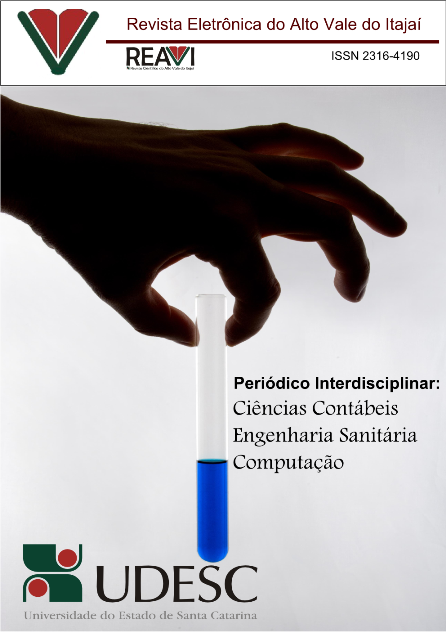Case study: analysis of the degree of innovation in four companies in the field of information and communication technology – TICS, by the Innovation Radar methodology
DOI:
https://doi.org/10.5965/2764747105102016082Keywords:
innovation, companies, technologyAbstract
The article examines the innovation degree of four company of Information and Communication Technology (ICTs) at city of Pelotas / RS. It was used the methodology Innovation Radar, called dimensions of innovation Sawhney et al (2006) and Bachmann and Destefani (2008). ). The results showed that innovation has greater presence in the dimension ambience innovative, with informal atmosphere, little bureaucracy that generated the new ideas. However, presence dimension has the lowest degree of innovation, being ineffective in proposing new forms of distribution of products / services or improve existing points innovatively. it was identified the importance of innovation and planning,it was evidenced various ways to innovate in company.
Downloads
References
BACHMANN, D. L.; DESTEFANI, J. H. Metodologia para estimar o grau das inovações nas MPE. 2016.
BESSANT, J.; TIDD, J. Inovação e empreendedorismo. S/L: Bookman. 2009.
GALLOUJ, F.; DJELLAL, F. Introduction: filling the innovation gap in the service economy - a multidisciplinary perspective. In: Gallouj, F; Djellal, F. The Handbook of Innovation in Services: a Multi-disciplinary Perspective. Edward Elgar, UK / USA. 2010.
GONVIDARAJAN, V. O Desafio da Inovação: Fundamentos Para Construir Empresas Inovadoras Em meio a incertezas e complexidades. Rio de Janeiro: Elsevier. 2014.
GRANO, N. Empreendedorismo inovador: como criar Startups de Tecnologia no Brasil. São Paulo: Évora. 2012.
MINAYO, M. C. S. Pesquisa social: teoria, método e criatividade. Petrópolis: Vozes. 2001.
SANTOS, A. B. A.; FAZION, C. B.; MEROE, G. P. S. Inovação: um estudo sobre a evolução do conceito de Schumpeter. 2016.
SCHUMPETER, J. A. Teoria do Desenvolvimento Econômico. São Paulo: Nova Cultural. 1985.
TRIAS, F. B.; KOTLER, P. A Bíblia da Inovação. São Paulo: Leya. 2012.
VARGAS, E. R.; BOHRER, C. T.; FERREIRA, L. B.; MOREIRA, M. F. A pesquisa sobre inovação em serviços no Brasil: estágio atual, desafios e perspectivas. 2010.
YIN, R. K. Estudo de caso: planejamento e métodos. 2 a edição. Porto Alegre: Bookman. 2001.
Downloads
Published
How to Cite
Issue
Section
License
Copyright (c) 2017 Carlos Raniel Domingues, Isabel Barros Rasia, Janaina Mendes Oliveira, Paulo Pitzer Rasia, Gustavo Rosa Borges, Cristine Hermann Nodari

This work is licensed under a Creative Commons Attribution 4.0 International License.
Brazilian Journal of Accounting and Management offers free and immediate access to its content, following the principle that providing scientifical knowledge in a free manner promotes a better world democratization of knowledge. Authors maintain copyright of articles and grant to the journal the rights of the first publication, according to the Creative Commons Attribution licensing criteria, which allows the work to be shared with initial publication and authorship recognition. These licenses allow others to distribute, remix, adapt, or create derived work, even if it is for commercial purposes, provided that the credit is given to the original creation.




















